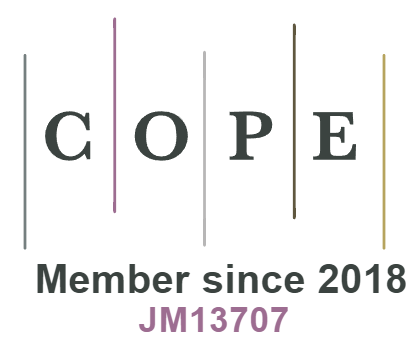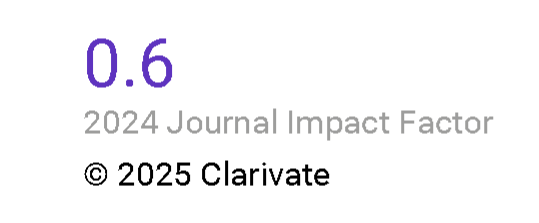The (Greatest) Fragment of Classical Logic that Respects the Variable-Sharing Principle (in the FMLA-FMLA Framework)
DOI:
https://doi.org/10.18778/0138-0680.2021.08Keywords:
Relevant logics, non-transitive logics, p-matrix, weak Kleene algebra, infectious logicsAbstract
We examine the set of formula-to-formula valid inferences of Classical Logic, where the premise and the conclusion share at least a propositional variable in common. We review the fact, already proved in the literature, that such a system is identical to the first-degree entailment fragment of R. Epstein's Relatedness Logic, and that it is a non-transitive logic of the sort investigated by S. Frankowski and others. Furthermore, we provide a semantics and a calculus for this logic. The semantics is defined in terms of a \(p\)-matrix built on top of a 5-valued extension of the 3-element weak Kleene algebra, whereas the calculus is defined in terms of a Gentzen-style sequent system where the left and right negation rules are subject to linguistic constraints.
References
A. Anderson, N. Belnap, Entailment: The Logic of Relevance and Neccessity, vol. 1, Princeton University Press, Princeton (1975).
Google Scholar
G. Badia, Variable sharing in substructural logics: an algebraic characterization, Bulletin of the Section of Logic, vol. 47(2) (2018), pp. 107–115, DOI: https://doi.org/10.18778/0138-0680.47.2.03
Google Scholar
DOI: https://doi.org/10.18778/0138-0680.47.2.03
E. Barrio, F. Pailos, D. Szmuc, A Hierarchy of Classical and Paraconsistent Logics, Journal of Philosophical Logic, vol. 1(49) (2020), pp. 93–120, DOI: https://doi.org/10.1007/s10992-019-09513-z
Google Scholar
DOI: https://doi.org/10.1007/s10992-019-09513-z
N. Belnap, How a Computer Should Think, [in:] G. Ryle (ed.), Contemporary Aspects of Philosophy, Oriel Press, Stocksfield (1977), pp. 30–55.
Google Scholar
F. Berto, Simple hyperintensional belief revision, Erkenntnis, vol. 84(3) (2019), pp. 559–575, DOI: https://doi.org/10.1007/s10670-018-9971-1
Google Scholar
DOI: https://doi.org/10.1007/s10670-018-9971-1
D. Bochvar, On a Three-Valued Calculus and its Application in the Analysis of the Paradoxes of the Extended Functional Calculus, Matematicheskii Sbornik, vol. 4 (1938), pp. 287–308.
Google Scholar
W. Carnielli, Methods of proof for relatedness logic and dependence logics, Reports on Mathematical Logic, vol. 21 (1987), pp. 35–46.
Google Scholar
P. Cobreros, P. Égré, D. Ripley, R. van Rooij, Tolerance and mixed consequence in the s’valuationist setting, Studia Logica, vol. 100(4) (2012), pp. 855–877, DOI: https://doi.org/10.1007/s11225-012-9422-y
Google Scholar
DOI: https://doi.org/10.1007/s11225-012-9422-y
P. Cobreros, P. Égré, D. Ripley, R. van Rooij, Tolerant, classical, strict, Journal of Philosophical Logic, vol. 41(2) (2012), pp. 347–385.
Google Scholar
DOI: https://doi.org/10.1007/s10992-010-9165-z
P. Cobreros, P. Égré, D. Ripley, R. van Rooij, Priest’s motorbike and tolerant identity, [in:] R. Ciuni, H. Wansing, C. Wilkommen (eds.), Recent Trends in Philosophical Logic, Springer, Cham (2014), pp. 75–85, DOI: https://doi.org/10.1007/978-3-319-06080-4_6
Google Scholar
DOI: https://doi.org/10.1007/978-3-319-06080-4_6
P. Cobreros, P. Égré, D. Ripley, R. van Rooij, Reaching transparent truth, Mind, vol. 122(488) (2014), p. 841–866.
Google Scholar
DOI: https://doi.org/10.1093/mind/fzt110
M. Coniglio, M. I. Corbalán, Sequent Calculi for the classical fragment of Bochvar and Halldén’s Nonsense Logics, [in:] Proceedings of the 7th Workshop on Logical and Semantic Frameworks with Applications (LSFA) (2012), pp. 125–136, DOI: https://doi.org/10.4204/EPTCS.113.12
Google Scholar
DOI: https://doi.org/10.4204/EPTCS.113.12
F. Correia, Weak necessity on weak Kleene matrices, [in:] F. Wolter, H. Wansing, M. de Rijke, M. Zakharyashev (eds.), Advances in Modal Logic, World Scientific, River Edge, NJ (2002), pp. 73–90, DOI: https://doi.org/10.1142/9789812776471_0005
Google Scholar
DOI: https://doi.org/10.1142/9789812776471_0005
B. Dicher, F. Paoli, ST, LP, and tolerant metainferences, [in:] C. Başkent, T. M. Ferguson (eds.), Graham Priest on Dialetheism and Paraconsistency, Springer, Dordrecht (2020), pp. 383–407, DOI: https://doi.org/10.1007/978-3-030-25365-3_18
Google Scholar
DOI: https://doi.org/10.1007/978-3-030-25365-3_18
M. Dunn, Intuitive semantics for first-degree entailments and ‘coupled trees’, Philosophical Studies, vol. 29(3) (1976), pp. 149–168, DOI: https://doi.org/10.1007/BF00373152
Google Scholar
DOI: https://doi.org/10.1007/BF00373152
R. Epstein, The Semantic Foundations of Logic, vol. I: Propositional Logics, Springer (1990), DOI: https://doi.org/10.1007/978-94-009-0525-2
Google Scholar
DOI: https://doi.org/10.1007/978-94-009-0525-2
L. Fariñas del Cerro, V. Lugardon, Sequents for dependence logics, Logique et Analyse, vol. 133–134 (1991), pp. 57–71.
Google Scholar
M. Fitting, The Strict/Tolerant Idea and Bilattices, [in:] O. Arieli, A. Zamansky (eds.), Arnon Avron on Semantics and Proof Theory of Non-Classical Logics, Springer (2021).
Google Scholar
DOI: https://doi.org/10.1007/978-3-030-71258-7_8
J. M. Font, Abstract Algebraic Logic, College Publications, London (2016).
Google Scholar
S. Frankowski, Formalization of a Plausible Inference, Bulletin of the Section of Logic, vol. 33(1) (2004), pp. 41–52.
Google Scholar
R. French, A Simple Sequent Calculus for Angell’s Logic of Analytic Containment, Studia Logica, vol. 105(5) (2017), pp. 971–994, DOI: https://doi.org/10.1007/s11225-017-9719-y
Google Scholar
DOI: https://doi.org/10.1007/s11225-017-9719-y
N. Galatos, P. Jipsen, T. Kowalski, H. Ono, Residuated Lattices: An Algebraic Glimpse at Substructural Logics, Elsevier, San Diego, CA, USA (2007).
Google Scholar
J.-Y. Girard, Proof theory and logical complexity, Bibliopolis, Napoli (1987).
Google Scholar
S. Halldén, The Logic of Nonsense, Uppsala Universitets Arsskrift, Uppsala (1949).
Google Scholar
L. Humberstone, The Connectives, MIT Press, Cambridge, MA (2011).
Google Scholar
DOI: https://doi.org/10.7551/mitpress/9055.001.0001
S. C. Kleene, Introduction to metamathematics, North-Holland, Amsterdam (1952).
Google Scholar
S. Kripke, Outline of a theory of truth, Journal of Philosophy, vol. 72(19) (1975), pp. 690–716, DOI: https://doi.org/10.2307/2024634
Google Scholar
DOI: https://doi.org/10.2307/2024634
E. Mares, Relevance Logic, [in:] E. N. Zalta (ed.), The Stanford Encyclopedia of Philosophy, spring 2014 ed., Metaphysics Research Lab, Stanford University (2014), URL: https://plato.stanford.edu/archives/spr2014/entries/logic-relevance/
Google Scholar
E. J. Nelson, Intensional relations, Mind, vol. 39(156) (1930), pp. 440–453.
Google Scholar
DOI: https://doi.org/10.1093/mind/XXXIX.156.440
F. Paoli, Semantics for first-degree relatedness logic, Reports on Mathematical Logic, vol. 27 (1993), pp. 81–94.
Google Scholar
F. Paoli, Tautological entailments and their rivals, [in:] J. Béziau, W. Carnielli, D. Gabbay (eds.), Handbook of Paraconsistency, College Publications, London (2007), pp. 153–175.
Google Scholar
F. Paoli, M. P. Baldi, Proof Theory of Paraconsistent Weak Kleene Logic, Studia Logica, vol. 108(4) (2020), pp. 779–802, DOI: https://doi.org/10.1007/s11225-019-09876-z
Google Scholar
DOI: https://doi.org/10.1007/s11225-019-09876-z
W. T. Parry, Ein Axiomensystem für eine neue Art von Implikation (analytische Implikation), Ergebnisse eines mathematischen Kolloquiums, vol. 4 (1933), pp. 5–6.
Google Scholar
D. Ripley, Conservatively extending classical logic with transparent truth, Review of Symbolic Logic, vol. 5(2) (2012), pp. 354–378, DOI: https://doi.org/10.1017/S1755020312000056
Google Scholar
DOI: https://doi.org/10.1017/S1755020312000056
D. Ripley, Paradoxes and failures of cut, Australasian Journal of Philosophy, vol. 91(1) (2013), pp. 139–164, DOI: https://doi.org/10.1080/00048402.2011.630010
Google Scholar
DOI: https://doi.org/10.1080/00048402.2011.630010
G. Robles, J. M. Méndez, A Class of Simpler Logical Matrices for the Variable-Sharing Property, Logic and Logical Philosophy, vol. 20(3) (2011), pp. 241–249, DOI: https://doi.org/10.12775/LLP.2011.014
Google Scholar
DOI: https://doi.org/10.12775/LLP.2011.014
G. Robles, J. M. Méndez, A general characterization of the variable-sharing property by means of logical matrices, Notre Dame Journal of Formal Logic, vol. 53(2) (2012), pp. 223–244, DOI: https://doi.org/10.1215/00294527-1715707
Google Scholar
DOI: https://doi.org/10.1215/00294527-1715707
G. Robles, J. M. Méndez, F. Salto, A Modal Restriction of R-Mingle with the Variable-Sharing Property, Logic and Logical Philosophy, vol. 19(4) (2010), pp. 341–351, DOI: https://doi.org/10.12775/LLP.2010.013
Google Scholar
DOI: https://doi.org/10.12775/LLP.2010.013
C. Scambler, Classical logic and the strict tolerant hierarchy, Journal of Philosophical Logic, vol. 2(49) (2020), p. 351–370, DOI: https://doi.org/10.1007/s10992-019-09520-0
Google Scholar
DOI: https://doi.org/10.1007/s10992-019-09520-0
K. Schütte, Proof Theory, Springer, Berlin (1977).
Google Scholar
DOI: https://doi.org/10.1007/978-3-642-66473-1
D. Szmuc, A simple matrix semantics and sequent calculus for Parry’s logic of Analytic Implication, Studia Logica, (2021), DOI: https://doi.org/10.1007/s11225-020-09926-x
Google Scholar
DOI: https://doi.org/10.1007/s11225-020-09926-x
D. Szmuc, T. M. Ferguson, Meaningless Divisions, forthcoming in Notre Dame Journal of Formal Logic.
Google Scholar
G. Takeuti, Proof Theory, 2nd ed., Elsevier, Amsterdam (1987).
Google Scholar
R. Wójcicki, Some Remarks on the Consequence Operation in Sentential Logics, Fundamenta Mathematicae, vol. 68(1) (1970), pp. 269–279.
Google Scholar
DOI: https://doi.org/10.4064/fm-68-3-269-279
Downloads
Published
How to Cite
Issue
Section
License

This work is licensed under a Creative Commons Attribution-NonCommercial-NoDerivatives 4.0 International License.















